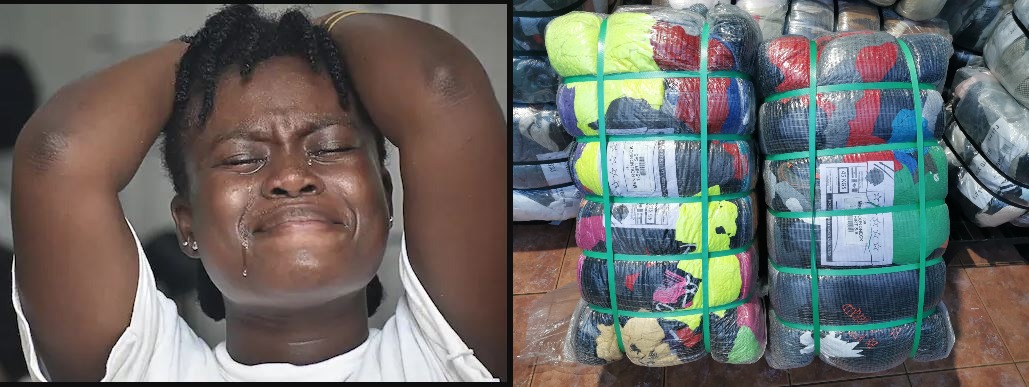Agatha Nkirote is a Kenyan content creator and entrepreneur who has faced both success and setbacks in her business journey. In a YouTube video shared with her 50,000+ subscribers, Nkirote opens up about how she lost all her money in a second-hand clothing (mitumba) business she had started with a friend.
At the time, Nkirote worked for a well-paying job in a Chinese company but felt unfulfilled. She decided to leave the job to pursue entrepreneurship with a friend. Together, they set up a second-hand baby clothing store in the bustling Toi Market.
“I knew that baby clothes in the mitumba business would always have a market—after all, kids are always being born, and the demand would never end,” Nkirote explained.
The business started off well when they managed to buy their first bale from an Indian vendor along Mombasa Road. However, their excitement quickly faded when they opened the bale, which cost Ksh 13,000, only to find that it contained mostly rejects.
“When I opened the bale, I almost cried. The entire bale was filled with poor-quality clothes. If you don’t have someone guiding you on the best bales to buy, you’re in for a rough ride,” she shared.
Despite the setback, Nkirote sold the better items and made Ksh 4,000, thanks to a friend who connected her with another supplier for their next stock.
“I got another bale that looked promising. The next weekend, I made Ksh 5,400, and I was overjoyed. Even during the week, I could make Ksh 1,000 or Ksh 500 from passers-by,” she recalled.
Her dream was to grow the business to the point where she could earn over Ksh 20,000 a day, just like other successful vendors. However, the arrival of the COVID-19 pandemic changed everything.
A viral video claiming that second-hand clothes from abroad could carry the virus spread, leading many customers to avoid buying mitumba clothes, especially baby clothes, which were seen as especially susceptible to contamination.
“Who would buy clothes for their kids, knowing they could get infected? There were no customers at all. I remember opening the shop and sitting outside, waiting for a single customer, but no one came by,” Nkirote lamented.
Things worsened when the government imposed social distancing in public transport, raising fares to Ksh 500-600 per day. With no customers to make up for the increased costs, commuting to the shop became a financial burden. She reduced her visits to the shop to weekends only.
“Within a month, I was broke to the point where I couldn’t afford the fare to the shop anymore. I would only go Thursday to Saturday, but still, no one was coming,” she said.
Her stock piled up unsold, and another bale remained stuck at the Mombasa port for three months. Eventually, she was forced to shut down her shop. Reflecting on her experience, Nkirote attributes the failure of her business to a lack of research.
“There’s nothing worse than diving into a business based on the illusion of easy money without doing proper research. If you don’t understand the market and its challenges, you will fail,” Nkirote cautioned.



